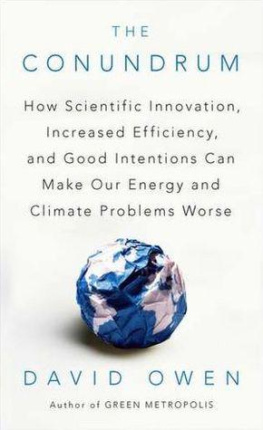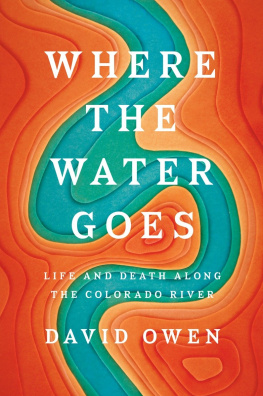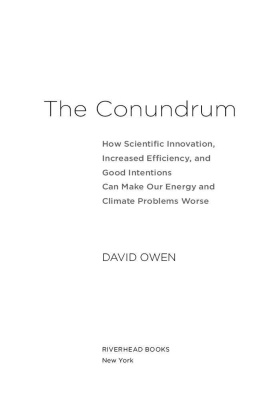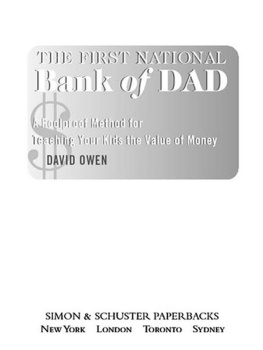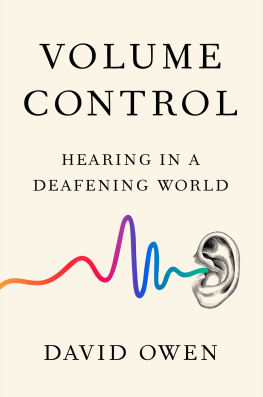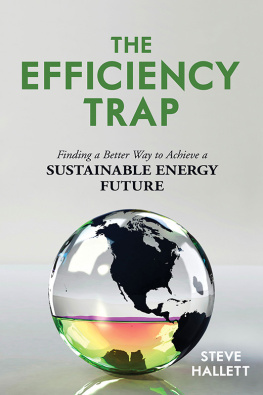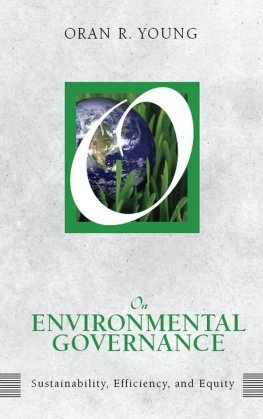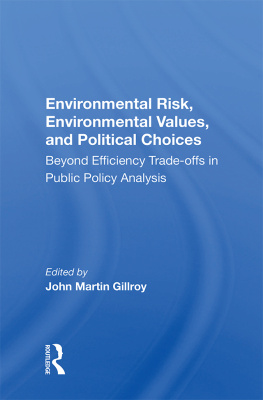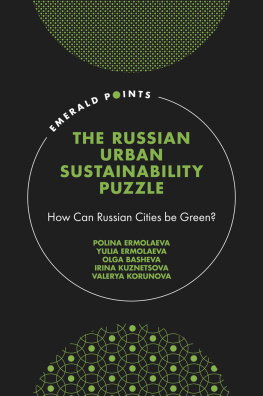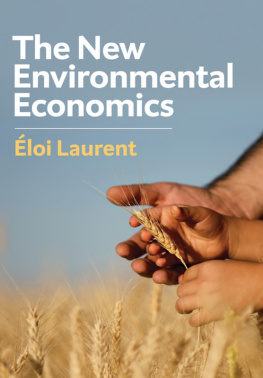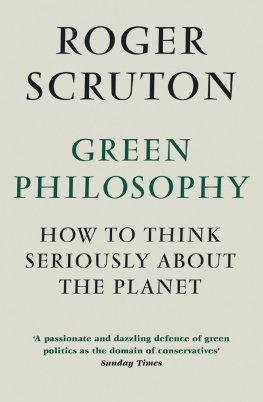Praise for Green Metropolis
Owen makes a convincing case that Manhattan, Hong Kong, and large, old European cities are inherently greener than less densely populated places because a higher percentage of their inhabitants walk, bike, and use mass transit than drive; they share infrastructure and civic services more efficiently; they live in smaller spaces and use less energy to heat their homes (because those homes tend to share walls); and theyre less likely to accumulate a lot of large, energy-sucking appliances. Pugnacious and contrarian, this book has a lot of fun at the expense of sentimental pastoralists, high-minded environmentalists, and rich people trying to buy their way into higher green consciousness.
The New York Times Book Review
The deservedly respected journalist David Owen spent a lot of time in recent years patrolling the environmental beat, doing research for the excellent book we now have before us. Owens style is cool, understated, and witty; it does not appear to be in his nature to be alarmist. But this is a thoroughly alarming book, perhaps all the more so because Owen is so matter-of-fact: The facts alone are so discouraging that no rhetorical flourishes are necessary to underscore their urgency. No one can wave a wand and turn the environmental disasters of some cities across the country into instant Manhattans, with tall apartment buildings densely situated, efficient mass transit and zillions of pedestrians. The much more likely prospect is that we will just keep stumbling along, indulging ourselves and closing our eyes to reality until it crashes in on ussooner rather than laterwith highly unpleasant and probably calamitous consequences.
The Washington Post
David Owen advances the provocative argument that the asphalt jungle is greener than the places where most Americans live. A hard-hitting book that punctures many eco-balloons.
Witold Rybczynski, author of City Life and
Meyerson Professor of Urbanism, University of Pennsylvania
The future of our planet may be uncertain, but one thing is clear: David Owen is going to generate significant heat with Green Metropolis, his provocative manifesto that inverts many of our sacred assumptions about environmentalism. His book mounts a passionate, fact-studded case for the environmental advantages of Manhattan-style urban density. Fascinating and thought-provoking Green Metropolis offers high-test fuel for discussion.
NPR
Seminal to be read by anyone concerned with the true meaning of sustainability. In chapter after chapter, Owen punctures our myths surrounding the green movement with laser-guided precision in the hopes of clearing the air. His method is provocative with irreverent lucidity, he forces us to abandon unfounded beliefs, allowing the sustainability movement to evolve and mature, one realization and one city at a time.
Architectural Record
David Owen always delights with his elegant insights and his challenges to conventional thinking. In this book, he does so again by puncturing the myth of ecological Arcadia and reminding us why living in cities is the best way to be green. Its a triumph of clear thinking and writing.
Walter Isaacson, author of Steve Jobs
A bracing, important work of contrarian truth-telling.
Kurt Andersen, author of The Real Thing and Heyday
While the conventional wisdom condemns it as an environmental nightmare, Manhattan is by far the greenest place in America, argues this stimulating eco-urbanist manifesto. Owens lucid, biting prose crackles with striking facts that yield paradigm-shifting insights. The result is a compelling analysis of the worlds environmental predicament that upends orthodox opinion and points the way to practical solutions.
Publishers Weekly
New Yorker writer Owen lays out a simple plan to address our environmental crisislive smaller, live closer, and drive less. He presents a convincing argument. He effectively connects the dots among oil, cars, public transportation, ethanol, rising food prices, and the role of plastic in modern life. VERDICT: Owens engaging, accessible book challenges the idea of green and urban living.
Library Journal
Want to reduce your carbon footprint and save the planet? Move to Manhattan. Owen assembles useful facts, some of them sure to be surprises even for the most learned of NYC boosters. [He] provides a dogged, contrarian argument that scores some good points.
Kirkus Reviews
ALSO BY DAVID OWEN
Green Metropolis 2009
Sheetrock & Shellac 2006
Copies in Seconds 2004
The First National Bank of Dad 2003
Hit & Hope 2003
The Chosen One 2001
The Making of the Masters 1999
Around the House (also published as Life Under a Leaky Roof) 1998/2000
Lure of the Links (coeditor) 1997
My Usual Game 1995
The Walls Around Us 1991
The Man Who Invented Saturday Morning 1988
None of the Above 1985
High School 1981
The Conundrum
How Scientific Innovation,
Increased Efficiency, and
Good Intentions
Can Make Our Energy and
Climate Problems Worse
DAVID OWEN
RIVERHEAD BOOKS
New York
RIVERHEAD BOOKS
Published by the Penguin Group
Penguin Group (USA) Inc.
375 Hudson Street, New York, New York 10014, USA
Penguin Group (Canada), 90 Eglinton Avenue East, Suite 700, Toronto, Ontario M4P 2Y3, Canada (a division of Pearson Penguin Canada Inc.)
Penguin Books Ltd., 80 Strand, London WC2R 0RL, England
Penguin Group Ireland, 25 St. Stephens Green, Dublin 2, Ireland (a division of Penguin Books Ltd.)
Penguin Group (Australia), 250 Camberwell Road, Camberwell, Victoria 3124, Australia (a division of Pearson Australia Group Pty. Ltd.)
Penguin Books India Pvt. Ltd., 11 Community Centre, Panchsheel Park, New Delhi110 017, India
Penguin Group (NZ), 67 Apollo Drive, Rosedale, Auckland 0632, New Zealand (a division of Pearson New Zealand Ltd.)
Penguin Books (South Africa) (Pty.) Ltd., 24 Sturdee Avenue, Rosebank, Johannesburg 2196, South Africa
Penguin Books Ltd., Registered Offices: 80 Strand, London WC2R RL, England
While the author has made every effort to provide accurate telephone numbers and Internet addresses at the time of publication, neither the author nor the publisher is responsible for errors, or for changes that occur after publication. Further the publisher does not have any control over and does not assume any responsibility for author or third-party websites or their content.
Copyright 2011 by David Owen
Book design by Tiffany Estreicher
All rights reserved.
No part of this book may be reproduced, scanned, or distributed in any printed or electronic form without permission. Please do not participate in or encourage piracy of copyrighted materials in violation of the authors rights. Purchase only authorized editions.
RIVERHEAD is a registered trademark of Penguin Group (USA) Inc.
The RIVERHEAD logo is a trademark of Penguin Group (USA) Inc.
First Riverhead trade paperback edition: February 2012
Library of Congress Cataloging in Publication Data
Owen, David, date.
The conundrum : how scientific innovation, increased efficiency, and good intentions can make our energy and climate problems worse / David Owen. 1st Riverhead trade pbk. ed.
p. cm.
Includes bibliographical references.
EISBN: 9781101560136 1. Green technologyAnecdotes. 2. Energy consumptionClimatic factors. 3. Consumer behaviorEnvironmental aspects. 4. Sustainable living. I. Title.
TD148.O94 2012
628dc23
2011028855
PRINTED IN THE UNITED STATES OF AMERICA
Next page
